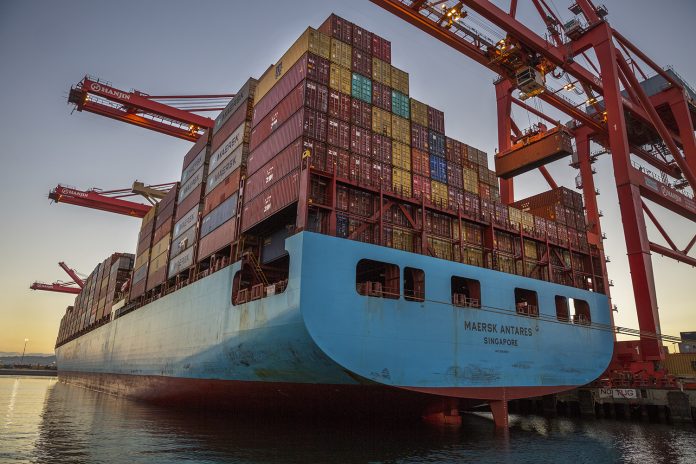The Federal Maritime Commission (FMC) has held talks with top executives of the world’s leading shipping lines in a bid to get them to take steps to alleviate congestion in US ports and end unreasonable demurrage and detention charges levied on US shippers and truckers.
As part of her investigation into the role shipping lines have played in the congestion currently being faced in US ports, FMC Commissioner Rebecca Dye is holding one-to-one talks with the top US-based executives of the world’s six largest carriers to press them to take a more active role in removing bottlenecks on the landside.
The commissioner said it was disappointing to see the industry slipping back into conflict mode after the successful collaboration that kept the supply chain moving during the early days of the pandemic.
“During the pandemic, all of our organisational silos came down and we were able to get the cargo out of the ports and particularly the PPE,” said Dye. “The silos have gone back up and that is unfortunate because to resolve disputes and problems the silos have to come down, people have to come to the table.”
The top-level meetings have followed fierce lobbying from US truckers’ associations and exporter groups complaining about what they claim are excessive demurrage and detention fees being levied by shipping lines as the industry struggles to speed up the flow of empty containers in the supply chain.
In particular, the FMC is focused on creating greater visibility on when and where containers are to be delivered to increase the efficiency of moving containers in and out of US ports.
“I’ve said that we must work out some solution to the problem once and for all,” said Dye. “That is the main thing that we are discussing with CEOs. Some of these meetings will happen this week but many will continue in the New Year.”
The problem of bottlenecks has manifested itself in soaring congestion surcharges and as much as US$150 million of demurrage and detention fees paid by US shippers for cargo delays in the ports of Los Angeles / Long Beach and New York and New Jersey in 2020.
The principal complaint of US trucking companies is that they are not solely responsible for the delays that have resulted in these fees and they have no option but to pay them to be able to retrieve and deliver cargoes to their customers.
It’s a moot point given that guidelines were introduced by the FMC in May to avoid shippers being punished when they have done “everything they can” to return the container on time.
“That is our concern,” said Dye, “that we are essentially subsidising the inefficiencies when the charges escalate during times of extreme congestion and bottlenecks, that there is no incentive to fix the problem. Our preference is that we address the underlying problem because that would be more beneficial to everybody that operates in the system.”
Dye said that she did not believe that the lines had deliberately created the situation for their own benefit. “Everyone is right now just trying to keep up,” she said. The FMC was so far pleased that there was a “willingness to engage” from leading carriers and in particular she was impressed by the leadership role being taken by the world’s number one line, Maersk, who has already met with the American Trucking Associations to discuss making improvements to the way its alliance with Mediterranean Shipping Company, 2M operates in US ports.
“I’m looking for industry leaders,” she said. ”It’s very positive as Maersk has already reached out.”
The technical solution being pursued by the FMC involves greater visibility on arrivals and forward planning as well as more effective data sharing. It’s also looking for a more effective application of the interpretative rule on demurrage and detention introduced earlier this year.
“I would not like to speak about what would happen if it’s not successful,” she said. “We would continue to have these talks. I am working on the assumption that this has got to happen.”
It’s the largest fact-finding mission in FMCs history, she said, with more interviews and submissions than any other investigation to date.
The investigation was recently expanded to incorporate the issue of carriers rejecting cargoes belonging to US exporters from the agriculture sector in a bid to speed up the return of containers required for more profitable US imports.
“The US wants to make sure that our exporters can get their goods to market,” said Dye and as such, the FMC is determined to find a solution, hopefully, without the need to introduce extra regulations, she said.
“I think everybody would prefer the industry to find commercial solutions. I generally support deregulation and we prefer industry solutions because honestly, they are much more likely to work,” she said. “There are always other approaches and I don’t think that the FMC would hesitate to use them if they were needed.”
Rainbow Blue Nelson
Americas Correspondent







